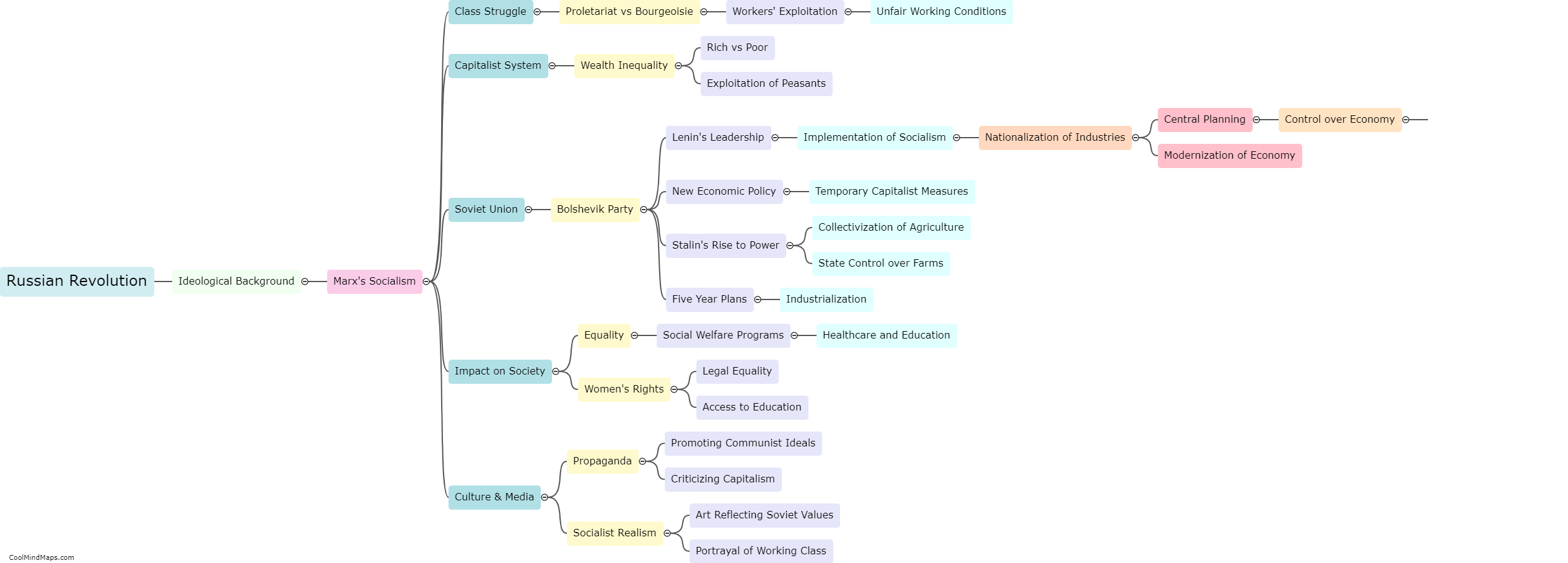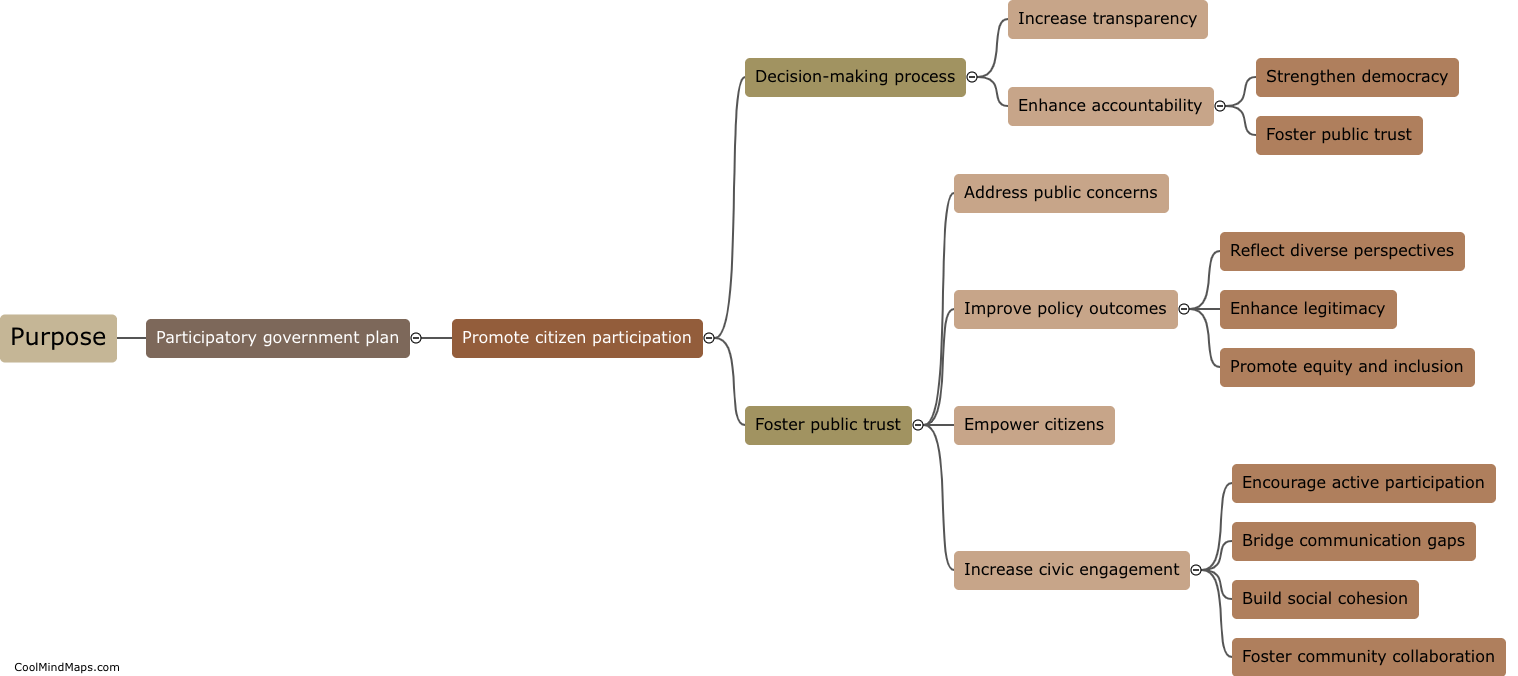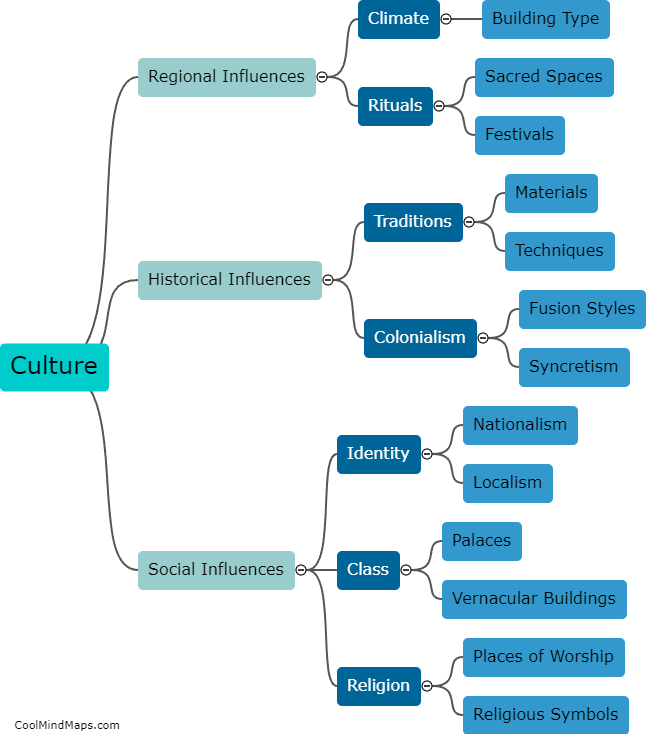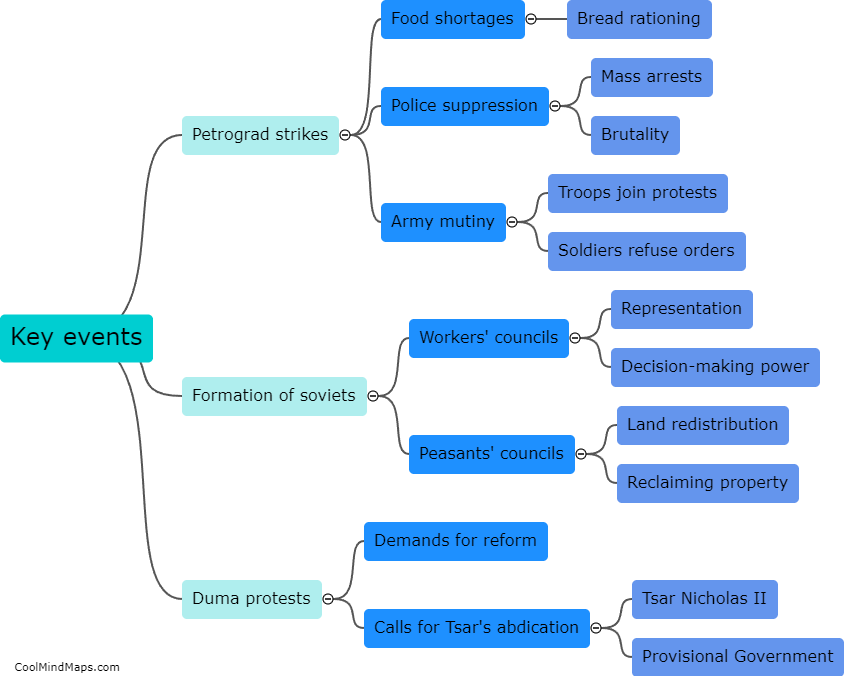How did socialism impact the Russian Revolution?
Socialism played a significant role in shaping the Russian Revolution of 1917. It provided the ideological framework and motivation for the overthrow of the autocratic Tsarist regime and the establishment of a new Soviet government. Socialism, particularly the Marxist variant advocated by Lenin and the Bolsheviks, called for the abolition of private property and the implementation of a classless society. This resonated with the discontented masses, including the peasantry and the urban working class, who endured harsh living conditions and economic disparities under Tsarism. The Bolsheviks leveraged socialist ideas to unite various revolutionary groups, promising land redistribution, workers' rights, and an end to the war. Ultimately, socialism served as the guiding principle of the Russian Revolution, ushering in a new era of Soviet statehood and decades of socialist policies in Russia.

This mind map was published on 23 August 2023 and has been viewed 189 times.











